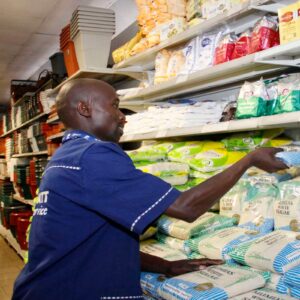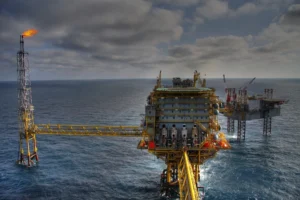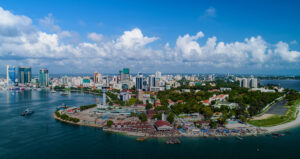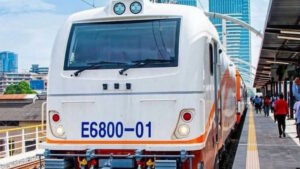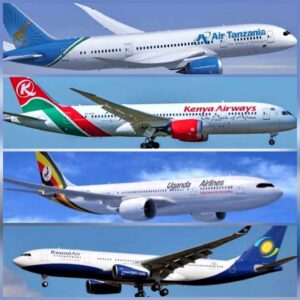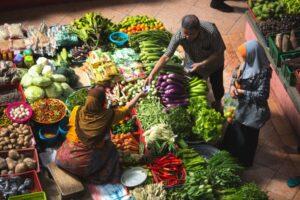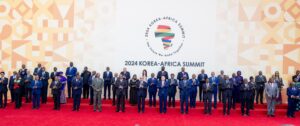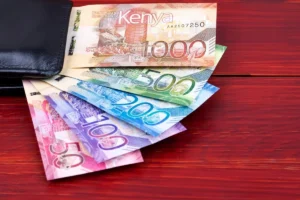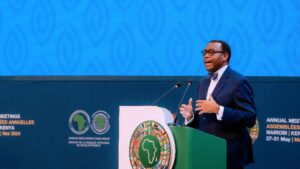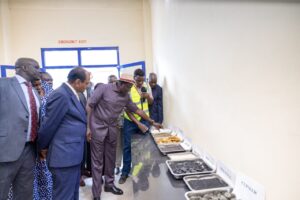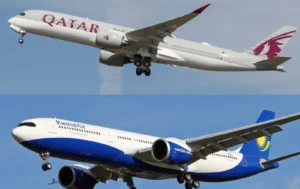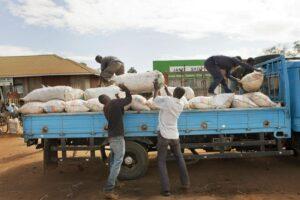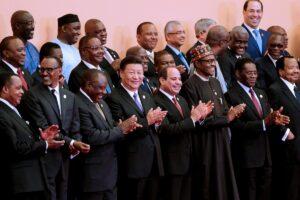- Africa’s new dawn: the rising role of digital and AI in agriculture
- Can Dangote Refinery Transform Africa Energy Ambition
- Gallup Survey: 80 per cent of Kenyan Workers Are Disengaged and Seek New Opportunities
- Madagascar Man Freed from 5KG Tumor After 15-Year Struggle
- How women in Africa are perceived and treated
- Sugar consumption in Kenya to Increase to 1.23 Million Tonnes
- Can Somalia and Turkey Oil deal Bring Change in Somaliland
- Remittances to Kenya dropped to $371.6 million in June, marking a six month low
Industry and Trade
- The construction took over 20 years and bears a processing capacity of 650,000 barrels per day 250,000 per day of gasoline and 100,000 of diesel.
- The Dangote oil refinery might halt the decades-long gasoline trade from Europe to Africa worth $17 billion each year.
Dangote Oil Refinery
Aliko Dangote, Nigeria’s and Africa’s wealthiest man ambition to foster energy reliance in his motherland and the region at large might be at risk. The giant oil refinery which is said to possess the potential to end decades-long gasoline trade from Europe to Africa worth $17 billion a year.
Concerns and tensions are high as a myriad of issues emerged before and since the $ 20 billion refinery came to life. According to various news reports, including the BBC and Reuters, the construction began in 2016 and started producing diesel and aviation fuel in January this year as petrol is expected to …
- Sugar consumption in Kenya is also expected to increase by 3.2 per cent this year driven by tourism and bakery
- Following the expiration of the ban in November 2023, production is expected to rebound significantly in 2024/25
- The survey also says that the growth in Kenya’s tourism sector will continue to create demand for sugar.
Kenya is expected to record a rise in sugar imports, as the effects of a ban on immature sugarcane processing kicks in, new findings have revealed. This is however expected to ease as millers ramp up their production
A report released by Fitch Solutions Company BMI and the United States Department of Agriculture shows that, the country should expect production to decrease by 32.9 per cent year on year in 2023/24 down to 530,000 tonnes from 790,000 tonnes in 2022/23.
This has majorly been attributed to the ban on sugarcane harvesting that was implemented in …
- According to the Turkish Energy Minister, Turkey will have exclusive rights for search and production when we find oil in these areas.
- Turkey and Somalia signed a defense and economic cooperation agreement during the Somali Defence minister’s visit to Ankara
- In March Somalia inked an oil and gas deal with Turkey which officials mentioned would foster cooperation in the exploration and exploitation of the deposits.
Somalia and Turkey Oil Deal
Despite being torn apart by civil war, Somalia’s geo-seismic studies have shown the war-torn country may have at least 30 billion barrels of oil and gas reserves.
Inching towards stability and fostering civil rest amid Islamic insurgents posing a threat to peace and harmony, Somalia’s newly discovered oil and gas deposits could be the nation’s breakthrough.
Although the resources take time to develop – exploration usually takes three to five years and production can only begin after the latter is …
- Flight Capacity in 2024 increased by 6 per cent increase in available seats, rising from 15.1 million in May 2023
- In Kenya, the Kenya Civil Aviation Authority (KCAA) is leading efforts to validate draft aviation regulations aimed at enhancing safety and efficiency
- ASK combines the capacity of an airline’s fleet with the distance those planes fly, providing a comprehensive measure of available passenger capacity over a given period.
African Airlines witnessed a 6 per cent increase in available seats, rising from 15.1 million in May 2023 to 15.9 million in May 2024, attributed to introducing new routes and increased flight frequencies.
This comes at a time when the aviation industry experienced a dynamic start to 2024, grappling with a multitude of challenges and opportunities.
African Airlines Association’s (AFRAA)’s latest data shows high demand for Available Seat Kilometers (ASK) across all regional flights.
…“Despite ongoing post-pandemic hurdles, the airline sector sustained
- Small businesses struggle for credit as lenders channel 80 percent to Medium Sized Enterprises
- High collateral requirements and unfavourable interest rates have been found to disadvantage MSMEs
- Only 16 percent of businesses are reaping from Kenya’s formal MSMEs financing market valued at $45.4 billion (Sh5.9 trillion).
Only 1.1 million micro, small, and medium enterprises in Kenya have access to formal credit out of the total 7.4 million MSMEs in the country.
This equals only 16 percent of businesses reaping from Kenya’s formal MSMEs financing market valued at $45.4 billion (Sh5.9 trillion).
According to a new finding by pan African market insights firm Stears, despite MSMEs accounting for over 98 percent of businesses and contributing a substantial 40 percent to GDP formal financing is still small.
…“Despite their outsized economic impact, only 16 per cent of these vital enterprises currently access formal credit. With most MSMEs dependent on informal and
- The inaugural Korea-Africa Summit 2024 highlights the strategic importance of Africa’s rich resources and market potential for South Korea.
- Asian economic powerhouse seeks to firm up ties between Seoul and 48 African nations through industrial infrastructure, digital transformation, and sustainable investments.
- Summit is also building on previous successes and aspires to foster mutual growth while addressing climate change, food security, and health.
South Korea is hosting a key summit for the first time with Africa, a forum that has seen leaders from 48 countries across the continent converge in Seoul to discuss expansive economic ties and cooperation between the two regions. With a focus on industrial infrastructure and digital transformation, the Korea-Africa Summit aims to leverage Africa’s rich resources and untapped market potential to foster mutual growth and sustainable growth.
Authorities in South Korea have outlined the agenda: tapping into Africa’s vast mineral wealth and growing market, which now stands …
- Kenyan Shilling to Reach Sh138 this month as effects of global rates and heavy rains come alive
- Additionally, the minor decline in the foreign exchange reserves between April and May signals interventions in the forex market by the CBK.
- The CBK is expected to leave rates unchanged at 13 per cent at its June meeting to support these dollar inflows and provide positive yields to investors.
Financial experts are now predicting that the Kenyan shilling will depreciate to Sh138 against the US dollar by the end of June 2024.
The analysist from pan African market insights firm Stears, say that the Kenyan shilling witnessed large swings in May, after appreciating 2.09 per cent between May 2 and 16. This saw the local currency resume a consistent depreciation to close the month at Sh133.37 against the dollar.
Stears notes that although the currency remained relatively unchanged compared to April, on average, …
- African Economic Outlook 2024 calls for an overhaul of the global financial architecture to transform African economies.
- Seventeen African economies are projected to grow by more than 5 per cent in 2024, potentially increasing to 24 by 2025.
- Growth in Southern Africa is projected to pick up slightly from an estimated 1.6 per cent in 2023 to 2.2 per cent in 2024
East Africa is projected to lead GDP growth on the continent, amidst global challenges, according to the African Development Bank Group’s African Economic Outlook 2024 report. This region is expected to see the fastest growth, with real GDP growth rising from an estimated 1.5 per cent in 2023 to 4.9 per cent in 2024 and 5.7 per cent in 2025.
However, the economic uncertainties in South Sudan and Sudan due to conflict have led to a downward revision of 0.2 percentage points for 2024 due to larger-than-expected …
- Kenya’s Export Promotion and Branding Agency has unveiled its strategic plan to grow Kenya’s export market to $11.5 billion by 2028.
- For established markets, Kenya aims to implement consolidation and diversification interventions.
- In the period Kenyan exports grew by over Sh2 billion into the country’s top 25 markets.
Kenya’s Export Promotion and Branding Agency has unveiled its strategic plan to grow Kenya’s export market to $11.5 billion by 2028. This will be a 10 percent increase from the $ 6.7 billion (Sh873.1 billion) recorded in 2022.
The agency through the implementation of the 2023/2024 – 2027/2028 strategic plan, says Kenya is set to be positioned among the top 50 global brands.
This renewed push comes at a time when Kenya’s export value for the first time in history hit $7.7 billion (Sh1trillion) in 2023, according to the 2024 economic survey by KNBS. The great performance was contributed by tea which …






